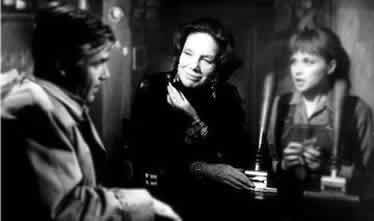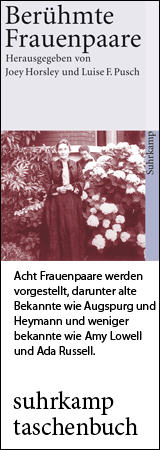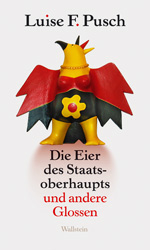Biographies Elisabeth Flickenschildt

born on March 16, 1905, in Hamburg-Blankenese, the German Empire
died on October 26, 1977, in Stade, West Germany
German actress, director, and author
120th birthday on March 16, 2025
Biography
A maid working for her parents lent “Flicki” the money for a ticket to Berlin, where she wanted to become an actress. Her parents did not understand her, and she herself could not really explain her desire. But she took herself seriously and was committed to acting. She became one of the most important actresses of the post-war period.
With an intensity bordering on obsession, she worked—especially alongside Gustaf Gründgens—for the theater, which was her life. “I don't know how I would feel without work,” she once said. She survived the war relatively unscathed: although her home was bombed, the Prussian State Theater in Berlin was a protected “island” under Gründgens' direction.
In her autobiography, Flickenschildt makes no mention of her marriage to theater scholar, dramaturge, and Gründgens' personal assistant Rolf Badenhausen, whose kind help she nevertheless relied on until the end of her life and beyond: “Take care of the house and yard, especially the animals…”
In contrast, the description of her work with Gründgens fills most of her book. They felt that they were soulmates; they both lived to deliver the artistic excellence they demanded of themselves. Yet she did not accept his invitation to vacation together in Madeira; her shyness about long journeys and her need for interpersonal distance probably prevented her from doing so. Gründgens was nevertheless the central figure in her life, and she was the only person he allowed to upstage him, even if he would then snort with rage.
His death meant the end of the theater work that had consumed them both. She continued to perform, but she felt that “the theater air had grown cold” and lost her former enthusiasm. It was her work in films, in which she often played demonic characters, that served as a source of income for her farms. She was an excellent farmer, and drew strength for her acting from working the land. Her living quarters, furnished with works of art and antiques, had a strange museum-like feel. There were no sitting areas for cozy get-togethers in her house, but the stables for the cows she loved so much were all tiled.
Flickenschildt died as a result of a car accident in 1977. In a photo documentation published the following year, her colleague Boy Gobert wrote of her “unique strangeness” — a special expression for a special woman.
(Text from 2004; translated with DeepL.com; edited by Ramona Fararo, 2025.
Please consult the German version for additional information, pictures, sources, videos, and bibliography.)
Author: Mechthild Winkler-Jordan
If you hold the rights to one or more of the images on this page and object to its/their appearance here, please contact Fembio.



